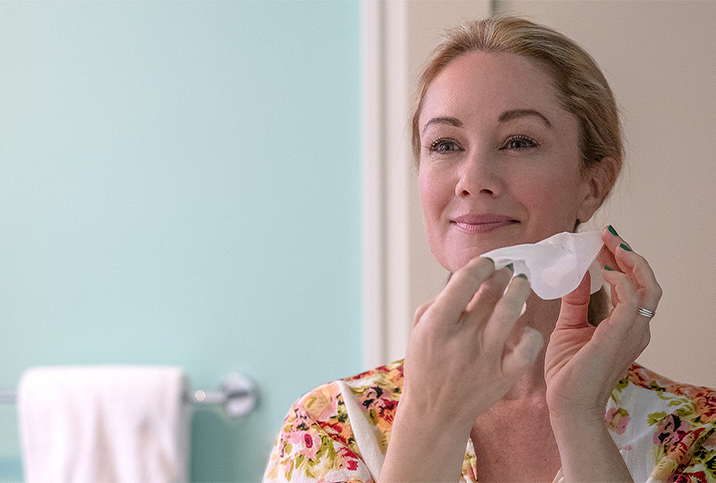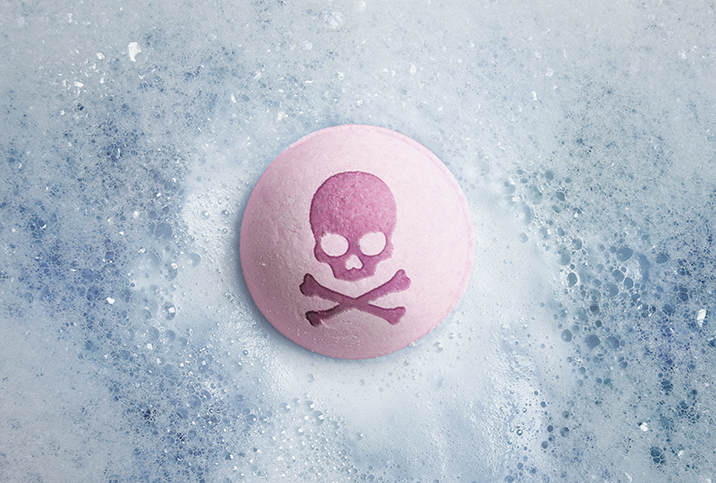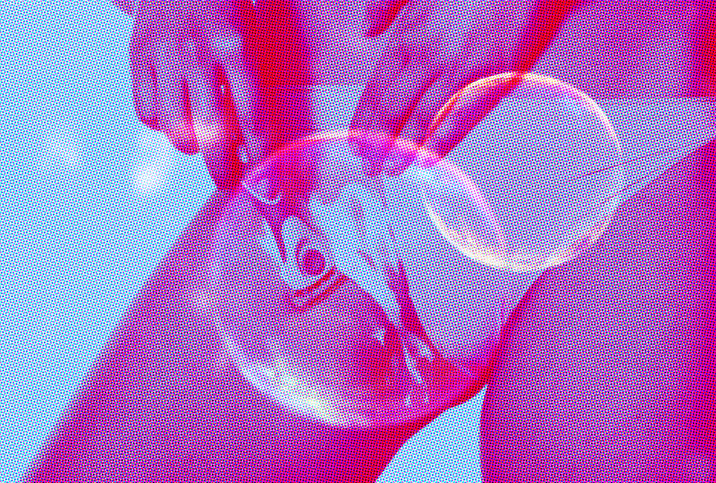Grooming and Hygiene Products for Women

Grooming and hygiene products have long been marketed to women as essential components of healthcare and self-care. Today, more than ever, vaginal products in particular are having a moment as it's becoming less taboo to talk about what goes on down there. But how many of these products have actual benefits for your body, and how many are just marketing ploys? This head-to-toe list of different women's grooming and hygiene products will help you understand what you need (and what you should avoid).
Skincare
Let's start with the basics: There are a ton of skincare products out there, from soaps for specific skin types to creams that claim to fight acne or prevent aging. Which of them are actually helpful? When it comes to skincare, dermatologists recommend a simple routine involving a gentle cleanser (like Dove soap), moisturizer, sunscreen (which can be built into the moisturizer you use during the day) and, if you wish, an antioxidant serum that can protect your skin from damage leading to aging or repairing serum to reduce fine lines and wrinkles.
For your body, simpler is also better: A gentle drugstore-bought body wash will usually do. Body lotion is also helpful for those who have dry skin, but be skeptical about lotions claiming to contain vitamins that nourish your skin—they probably don't contain enough to make a meaningful difference.
Haircare
With the recent "no 'poo" trend, some people swear that forgoing shampoo has benefited their hair. But experts still recommend shampooing at least every few days, depending on how oily your hair is—or, if you choose not to use shampoo, washing with simple ingredients like baking soda or apple cider vinegar. It's also generally recommended to use conditioner, especially if your hair is dry and/or you use shampoo (which can wash out your hair's natural oils). Some products claim to provide "deep conditioning," but experts say they're not really different from regular conditioners—if you want a deep-conditioning treatment, try using coconut oil.
Some people also use styling products like mousse and hairspray, which aren't necessary but may help you to achieve a specific style like textured hair or added volume. Look out for products containing parabens or phthalates, which are potential hormone disruptors, and nonylphenol, which may increase your risk for breast cancer and obesity. One 2018 study in Environmental Research found these chemicals to be present in products like relaxers, root stimulators and anti-frizz products frequently used by Black women. Hairsprays and similar products can also contain phthalates and other harmful chemicals, so keep an eye out for nontoxic and organic products when possible, and avoid anything with formaldehyde or formaldehyde-releasing chemicals or "fragrance" listed as an ingredient.
Makeup
As you might guess, makeup doesn't have any scientific benefits for your face—it's typically worn to enhance aesthetic appearance. And in fact, not wearing makeup can be helpful for avoiding skin issues like dryness and acne, in part because makeup palettes and brushes can introduce bacteria into the skin. Natural makeup products may appeal to those who have sensitive skin or want to avoid potential irritants. In addition, some makeup products contain potentially dangerous chemicals, so products that market themselves as "nontoxic" or "clean beauty" may actually be safer.
It's also best to avoid counterfeit makeup, which can contain dangerous things like bacteria and animal waste. If you're being sold makeup that claims to be from a major cosmetics brand but the price does not reflect that, it could be counterfeit.
Hair removal
Shaving is actually a relatively recent phenomenon for American women. Leg and armpit hair removal became a trend only after ads for hair removal products began promoting these practices in the early to mid-1900s. Before then, most women didn't think twice about their body hair, and they likely didn't need to. There aren't any health benefits to shaving your legs, and not shaving means you'll avoid razor burn, skin irritation and micro-tears that can leave your skin vulnerable to infection. (Waxing and hair removal creams can have similar negative effects.) Shaving your armpits also has these potential downsides, but on the upside, it can reduce sweating and body odor.
What about shaving down there? This is a more recent trend that also has no health benefits. In fact, it may carry an added risk: One 2016 study in Sexually Transmitted Infections linked pubic hair removal (including shaving and waxing) with a higher rate of sexually transmitted infections, potentially because bacteria and viruses can pass through tears in the skin created by hair removal. However, another study conducted at Ohio State University in 2019 failed to find such a correlation. Mostly, shaving comes down to a matter of personal preference.
Douching
Women have been douching—squirting fluid into the inside of the vagina using a bag or bottle—since ancient times under the misguided belief that it can protect them from pregnancy or STIs. In the early 1900s, women began douching with Lysol for this purpose. When actual birth control became available and word got out that douching would not prevent pregnancy or STIs, Lysol and other companies began promoting douching for cleanliness. Those who douche most commonly do so with vinegar and water or commercial solutions containing antiseptics and fragrances.
Although nearly 1 in 5 American women ages 15 to 44 say they douche, the vagina has self-cleaning mechanisms built in, so it doesn't require any washing. There is no benefit to douching, and there actually could be a number of risks. Research has found that women who douche have a 73 percent higher risk of pelvic inflammatory disease, a 76 percent higher risk of ectopic pregnancy (where the embryo implants outside the uterus) and a higher risk of cervical cancer and vaginal infections. This could be in part because douching disrupts the natural balance of bacteria in the vagina.
Vaginal melts
There's a new trend you might have seen on TikTok called vaginal melts. These are suppositories that melt when placed inside the vagina, claiming to moisturize it and make it taste and smell better, with flavors such as strawberry and peach.
While the scents may not be necessary, it's possible that vaginal melts could help alleviate vaginal dryness. However, vaginal melts present a similar problem to douching: They can disturb the natural balance of bacteria in the vagina, which may lead to infections. If you're dealing with vaginal dryness that causes you discomfort, it's best to talk to a doctor about what might be causing it and use a plain, unscented oil, such as coconut oil, as a moisturizer.
Vaginal washes and wipes
The term "vaginal wash" is a bit of a misnomer: Most products that market themselves as vaginal washes and wipes are actually for the vulva—the external female genitalia. Washing the vulva is a good idea, just like washing any part of your body, but all you actually need to use is water. That said, there are some products for cleaning the vulva that are most likely fine to use if you want to. Look for something that's designed not to disrupt the vulva's natural pH balance, or use something very simple like Dove bar soap.
There are a lot of grooming and hygiene products on the market that claim to promote women's overall well-being. But since the companies behind these products have a vested interest in making you believe they're necessary, it's important to do your own research. Some of them may be helpful, but don't buy into the myth that you need to go out and get every product you see advertised in order to be clean and healthy. Most often, chances are you don't.


















